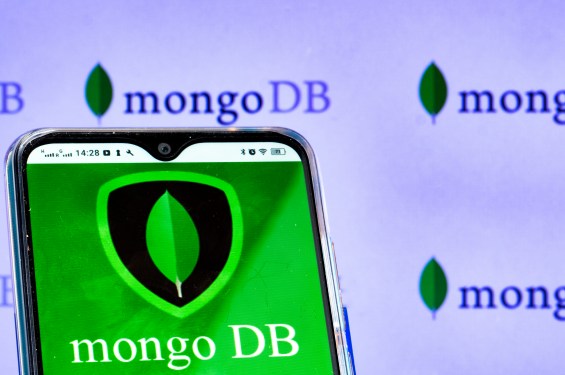MongoDB Announces New Product Releases and Updates at MongoDB.local NYC Event
New Capabilities in Atlas Service Enhance Support for AI and Semantic Search Workloads
At its recent MongoDB.local NYC event, MongoDB announced a slew of product releases and updates. Given the company’s focus on its fully managed Atlas service, it’s no surprise that the majority of news focuses on that platform. With improved support for AI and semantic search workloads, dedicated search nodes to better enable search use cases, and new capabilities to process streaming data, among others, MongoDB continues to evolve as a leading provider of developer data platforms.
Continuation of Atlas Development
According to Andrew Davidson, MongoDB’s SVP of product, this is a continuation of the work the company has been doing on Atlas in recent years. "With Atlas, we can deliver capabilities much more quickly," he said. "We’re able to add the power of search and time series and drive a wider variety of workload shapes." He argues that as businesses are forced to do more with fewer resources — all while developers are expected to build more applications and do so faster — expanding Atlas’ capabilities is a natural evolution for MongoDB.
Vector Search: A Key Example
For companies that want to use large language models (LLMs), translating their data into vectors and storing them is key to customizing foundation models for their needs. In addition, vector search also enables new workloads on Atlas, like text-to-image search, for example. "We think that, of course, a developer data platform that specializes in operational data should also be able to then express indexes that let you efficiently query the vector summaries of that data," said Davidson.
Stream Processing: A New Capability
Likewise, stream processing is a capability that hasn’t traditionally been the focus of MongoDB’s document model. For a while now, MongoDB has been offering its Aggregation Framework, which allows developers to perform transformations on a stream of documents that comes out of a database. "We realized, ‘holy moly, that’s a perfect metaphor for being able to conceptualize transformations on a stream coming off Kafka,’” Davidson explained.
Support for Querying Data in Microsoft Azure Blob Storage
Another new feature here is support for querying data in Microsoft Azure Blob Storage with MongoDB Atlas Online Archive and Atlas Data Federation. MongoDB previously launched support for AWS. While MongoDB would obviously prefer it if everybody hosted their data in MongoDB, the reality is that most enterprises will continue to use multiple systems. Atlas Data Federation makes it easy for developers to read and write data from and to Atlas databases and third-party cloud object stores, which then makes it easier for them to generate and combine data streams from multiple data sources to power their applications.
New Features in MongoDB Atlas
Some of the other new features MongoDB is launching this week include:
- Atlas Search Nodes: Dedicated nodes for scaling search workloads independent of the database.
- Improvements to Time Series Workloads: Enhanced support for enterprise-scale time series workloads.
These new capabilities are in response to the feedback MongoDB gets from customers all around the world. "They love that their teams are able to quickly build and innovate with MongoDB Atlas and want to be able to do even more with it across the enterprise," said Dev Ittycheria, MongoDB’s president and CEO. With the new features they’re launching today, they’re further supporting not only customers who are just getting started but also those who have the most demanding requirements for functionality, performance, scale, and flexibility so they can unleash the power of software and data to build advanced applications to transform their businesses.
The Future of Developer Data Platforms
As MongoDB continues to evolve as a leading provider of developer data platforms, it’s clear that its focus on Atlas is paying off. With new capabilities in AI and semantic search workloads, dedicated search nodes, and enhanced support for time series workloads, MongoDB is poised to continue leading the industry in innovation.
Related Articles
- Biotech & Health: More Money Comes to AI Healthcare: Qventus Nabs $105M at $400M+ Valuation
- AICore: Weave, a $19B AI Compute Provider, Opens Its First International Data Centers in the UK
- Social: Mastodon Announces Transition to Non-Profit Structure
Subscribe for the Industry’s Biggest Tech News
Don’t miss out on the latest news and updates from the tech industry. Subscribe to TechCrunch Daily News, AITechCrunch AI, and Startups Weekly to stay ahead of the curve.
No Newsletters Selected
Subscribe by submitting your email address to receive our daily newsletters. By doing so, you agree to our Terms and Privacy Notice.



